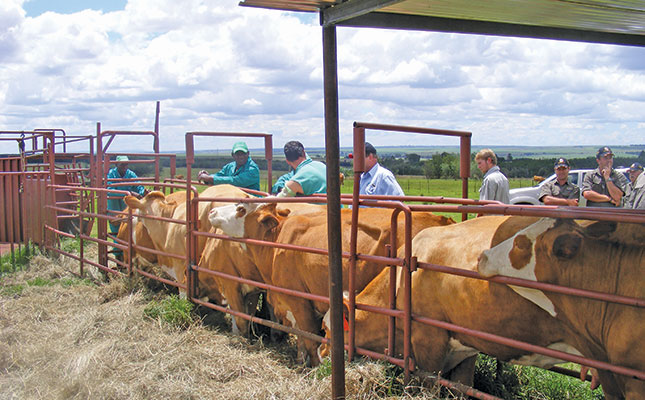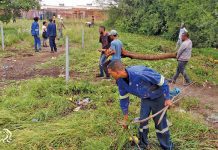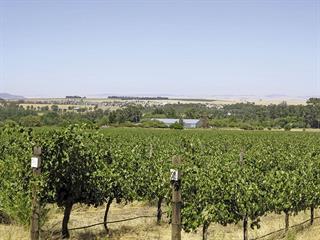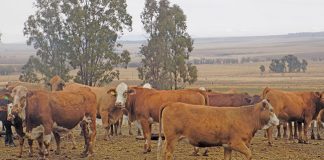
Photo: Annelie Coleman
Please tell us more about the history of the regulation of the veterinary profession in South Africa.
South Africa has a proud history of regulation of the veterinary profession, which dates back over 80 years.
The profession has evolved and grown significantly over the years and is now characterised by a vibrant private-practice sector that co-exists with public veterinary services. The profession has also expanded to include para-veterinary [professionals] as an integral part of a veterinary team that delivers comprehensive services to clients.
Why is transformation of the veterinary profession so important and how does the South African Veterinary Council (SAVC) intend to bring about transformation?
When we look at transformation, we need to look at it in the terms of the broader picture that would expand the profession and make its services more accessible. Change and adaptation are continuous processes that organisations have to undergo in order to be self-sustaining and remain relevant in society. Organisations that fail to adapt become irrelevant and dispensable.
The dawn of a constitutional democracy in South Africa, changing client needs, and rapid technological advances require deep reflection on the environment under which professional regulatory bodies in the country operate. Access to basic veterinary services, particularly in disadvantaged rural communities in the country, still remains a distant mirage.
Veterinary statutory bodies such as the SAVC could (or even must) play a significant role in setting rules and regulations that promote access to veterinary services.
Transformation should be seen as a means to an end; it is not an end in itself. When we look at transformation, we need to do so in terms of the broader picture that would expand the profession and make its services more accessible.
Why, in your opinion, is there such a shortage of veterinarians and para-veterinarians in South Africa, and what could or should be done in this regard?
The issue we are currently faced with is the skewed spatial distribution of veterinarians and para-veterinarians in the country, whereby there are few veterinary professionals
available in rural areas.
We therefore have to explore business models that enhance the establishment and sustenance of veterinary practices or services in rural areas through public-private partnerships. The awareness and practice of primary animal healthcare is still limited in most historically disadvantaged communities and this has a negative effect on successful livestock production in those communities.
Is one training facility sufficient or do we need more in South Africa? A few universities such as North-West University and the University of the Free State have, in the past, indicated an interest in veterinary training.
We’re aware that there are ongoing developments around the possible establishment of another veterinary faculty in the country. As a veterinary regulatory body, we have openly shared our self-evaluation framework with interested parties, which outlines the evaluation process for existing and new veterinary schools.
We don’t intend meddling in the process; however, we’ll provide support and information to assist any interested training institutions in their planning and due diligence.
Red meat producers are concerned about the increasing number of large-stock veterinarians leaving the sector. According to James Faber, chairperson of the Red Meat Producers’ Organisation, there is also a serious need for para-veterinarians in communal farming areas. What is the SAVC’s take on this?
The SAVC recently embarked on a public consultation process and new draft rules have been gazetted that could give way to broader participation of para-veterinarians in veterinary care delivery in rural communal farming areas. Communal farmers contribute close to 45% of South Africa’s cattle population and need information on keeping their animals healthy and productive.
Does the SAVC consult or communicate with its stakeholders and members to determine their specific needs and challenges in terms of veterinary training?
The SAVC participates in various stakeholder forums such as the National Animal Health Forum, Brucellosis Steering Committee, Livestock Welfare Coordinating Committee, Rabies Awareness Network, Food and Agriculture Organization of the UN, and many other organisations, to ensure that it has its feet on the ground on matters that affect the profession and the veterinary industry.
What is the best-case scenario for the South African veterinary profession in 10 years’ time?
The best-case scenario is a vibrant, inclusive and accessible profession that meets the critical needs of South Africa, its people and its animals.
How does the SAVC compare with other similar regulatory bodies in Africa?
The SAVC is without doubt one of the leading and most trusted veterinary regulatory bodies in Africa. The World Organisation for Animal Health (OIE) appointed the SAVC to lead a capacity-building project (Twinning Project) between the SAVC and the Veterinary Council of Tanzania, which was successfully concluded last year.
The objective was to encourage the strengthening of regional veterinary statutory bodies and ensure that they fulfil their responsibilities. The SAVC is proud to have participated in such a project, further reaffirming the trust that the OIE has given to the SAVC as a regulatory body.
Email Dr Alfred Tlolo Kgasi at [email protected].













